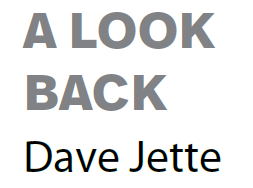Our story begins with the 1988 presidential campaign of Jesse Jackson. All around the country “Rainbow Coalitions” organized at the local and state level in support of the campaign. In Washington state, there came into being an incipient Rainbow Coalition with various components including the Thurston County Rainbow Coalition (TCRC).
After the election, various efforts were made to create ongoing Rainbow Coalitions. The Washington Rainbow Coalition under the leadership of Larry Gossett decided to hold a founding convention in February. Jackson, who had plans other than creating semi-autonomous democratic progressive electoral organizations, asked us to refrain—but we ignored his request and went ahead with the convention.
I was elected one of seven officers (Corresponding Secretary) of the newly formed Washington State Rainbow Coalition (WSRC). Organizationally, we got off to an excellent start, with top leadership being mainly persons of color; the WSRC Executive Committee (“ExCom” consisting of the seven officers) had only two white persons including me.
Then in early March 1989, Jackson and his National Rainbow Coalition (NRC) tried to rein in the incipient local and state Rainbow Coalitions by imposing an authoritarian, top-down organizational structure. It provided for the NRC to appoint or remove any state or even local officer, to determine the state organizational structure and to (only) call state conventions.

Alone within the WSRC ExCom, I vigorously opposed this transformation of the WSRC, forcing a statewide meeting of the members by circulating the new NRC bylaws to the various local components. Fortunately, as Corresponding Secretary I had the addresses of all the local officers so, to the anguish of the rest of the ExCom, I was able to do this. They would have preferred to keep the membership in the dark about what was going on. The result of this meeting was to keep the WSRC on its track of building a democratic organization from the ground up. The whole experience is detailed in my article “Washington State Rainbow.”
Fast forward to the middle of 1990. In June the Thurston County Rainbow (TCRC) had started publishing a free monthly newspaper Works in Progress (WIP). There were strong signs of life in Yakima, but otherwise the state coalition was steadily going downhill. The membership had dropped from over 1000 to around 300. People were not renewing their membership, and the WSRC was turning into a paper organization. The TCRC asked me to write a regular column for WIP commencing in September. With my first column, I tried to save the WSRC by enlightening members as to what was going on.
“The Rise and Fall of the Washington State Rainbow Coalition” The piece was so long it would have taken up three full pages of WIP. So we broke it into two parts, with the first part giving the history and current status of the WSRC, detailing efforts to combat Jackson and the NRC attempts to transform the WSRC into a component of Jackson’s campaign organization. The second part, published in October as “Rebuilding the Vision,” suggested a way to resurrect the WSRC. As Corresponding Secretary I still maintained the membership role, so I gave WIP the mailing labels and they sent the September issue out to all the remaining WSRC members.
Then the fun began, for the WSRC ExCom was aghast at my sending out what they considered to be a trashing of the WSRC. I asked for permission to send out the second part of the article, and although they were given the October issue, they didn’t seem to accept that trying to reinvigorate the organization was a positive thing. They forbade me to send the issue and instead “fired” me as Corresponding Secretary. This was illegal under our bylaws, and I just resigned from the position.
Not willing to give up, I asked the Thurston County Rainbow Coalition to send the October issue to all WSRC members in defiance of the ExCom. They agreed almost unanimously to do this. (One person wasn’t happy with this course of action, but declined to block consensus.) A sheet accompanying that mailing opened by stating “You are not supposed to be getting this mailing!” and went on to explain that “we do not believe it is the proper role of the leadership of an organization to control, to filter, to restrict in any way, the flow of information and opinions to the members about what the organization is doing and how it is functioning.”.
The TCRC had passed its baptism of fire, speaking truth to power. The critical importance of a free, independent press had been demonstrated. The deep respect with which Larry Gossett and I held each other had been unaffected by these intense struggles within the WSRC: in 1993 I served on the campaign committee that helped to place this outstanding African-American leader on the King County Council for the first of 27 years.
Thus commenced my close relationship with WIP. In the first two years I published twenty columns in my “On the Mark” series, mostly on theoretical questions such as democracy, socialism, Marxism, etc. Since then I have published the occasional article in WIP, and now, of course, I am writing the bi-monthly column “Looking Forward.”
I should like to impress on readers how politically significant the WIP project has been, not only because of its unabashedly progressive content, but also because in Washington state it alone has survived for three decades, from the ashes of the Washington State Rainbow Coalition. (In Seattle there have been several attempts over the years to create a progressive newspaper, but to no avail.)
In addition to his history with WIP outlined in this column, Dave Jette is the author of A Reformation of Dialectical Materialism, which incorporates feminist theory into a traditional Marxist framework (available at www.lulu.com)
Be First to Comment